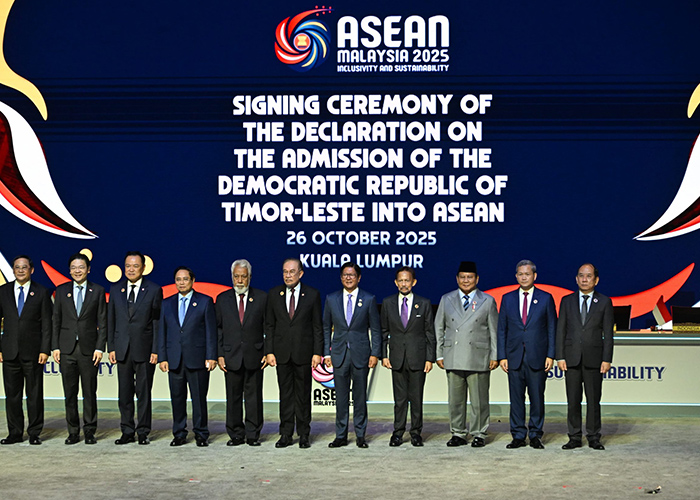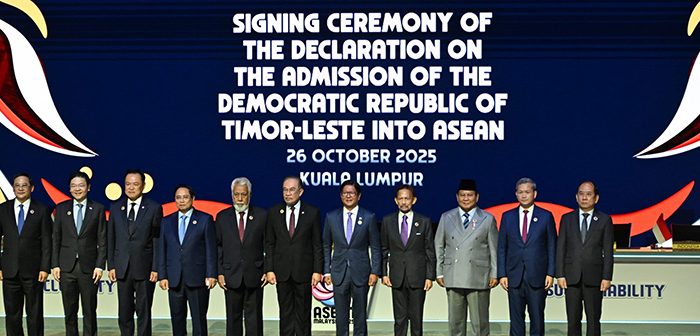
In a landmark moment for regional diplomacy, Timor-Leste has officially become the 11th full member of the Association of Southeast Asian Nations (ASEAN). The accession was sealed at the opening of the 47th ASEAN Summit on 26 October 2025, marking the first expansion of the bloc since the late 1990s.
Timor-Leste’s journey to full ASEAN membership spans more than a decade. The Southeast Asian nation first applied for membership in 2011, and in 2022 it was granted observer status and an “in-principle” admission roadmap. In May 2025, Malaysia’s Prime Minister and ASEAN Chair, Anwar Ibrahim, announced that Timor-Leste would become a full member in October — despite certain outstanding legal and institutional requirements.
At Sunday’s ceremony, Timor-Leste’s Prime Minister Kay Rala Xanana Gusmão expressed emotion and pride at the achievement: “For the people of Timor-Leste this is not only a dream realised, but a powerful affirmation of our journey — one marked by resilience, determination and hope.”
A population of around 1.4 million and one of the youngest democracies in Asia, Timor-Leste is among the region’s smaller and less-economically developed nations. Its accession carries both symbolic and strategic weight. With Timor-Leste’s membership, ASEAN’s geographic and cultural scope is further consolidated. Analysts note that the move fulfils the bloc’s aspiration of regional wholeness. Timor-Leste’s own journey of independence, conflict transformation and institution-building may provide useful experience for ASEAN’s political-security agenda. While the nation’s economy remains modest within the ASEAN-wide context, membership opens new avenues for trade, investment and integration into the regional production base. But observers caution that much depends on its ability to build institutional capacity and reform.
Membership is not the end point, but a beginning. Timor-Leste will need to invest in key areas to fully leverage its ASEAN inclusion: strengthening governance, scaling up human capital, improving infrastructure, and diversifying its economy. Meanwhile, ASEAN itself faces questions about how to integrate a new, smaller member without diluting its effectiveness or delaying decision-making. “Timor-Leste is ready for ASEAN, but is ASEAN ready for what comes next?” asks one commentary.
For Australia and other regional partners, Timor-Leste’s accession adds a new dimension to Southeast Asian diplomacy and trade. It offers Australia a strengthened voice via ASEAN as a partner, especially in areas like maritime security, sustainable development, and regional connectivity. Moreover, in a time when Indo-Pacific geopolitics are increasingly complex, ASEAN’s inclusiveness — and its willingness to expand — may enhance its relevance as a bridge between major powers, smaller states and global frameworks.
Sunday’s ceremony at the Kuala Lumpur summit marked more than just a formal admission. It signalled a new chapter for both Timor-Leste and ASEAN: the end of one era of aspiration, and the beginning of another of active participation. For the young nation, membership is a milestone of sovereignty and regional belonging. For ASEAN, it is a reaffirmation of its founding vision of unity in diversity.
Image Credit: ASEAN





